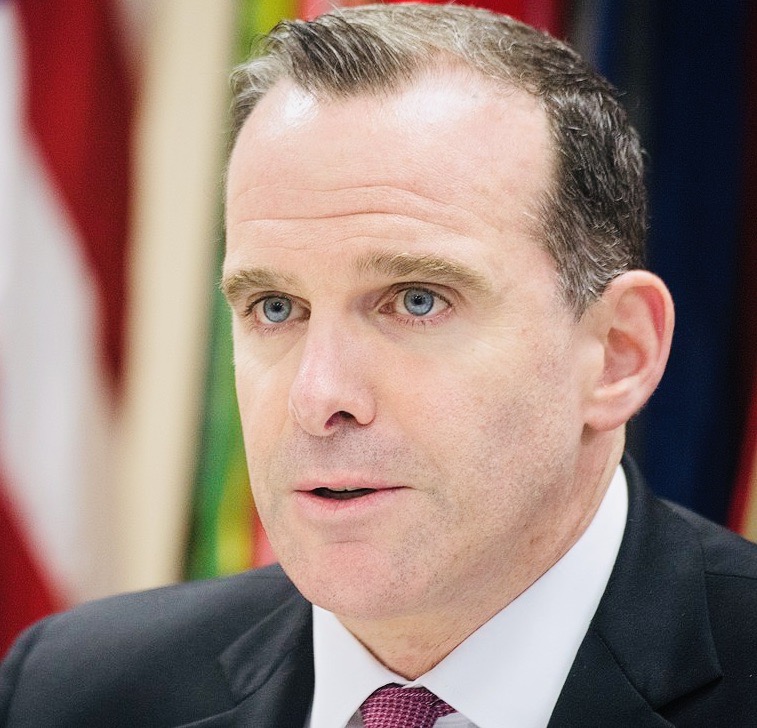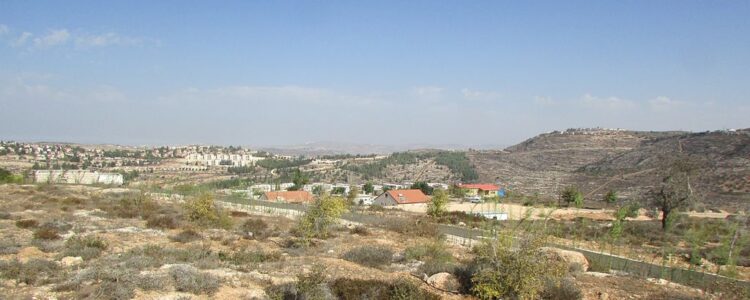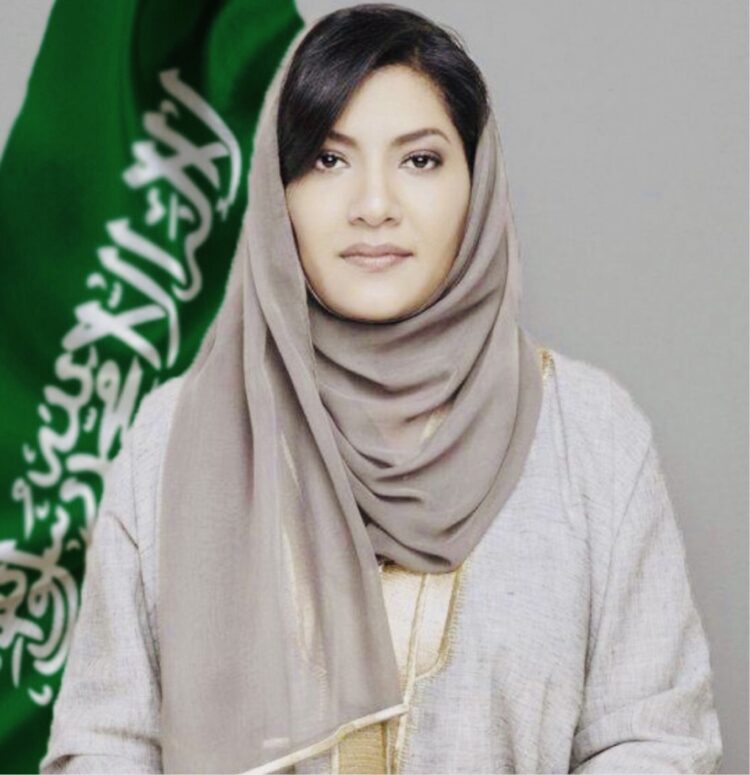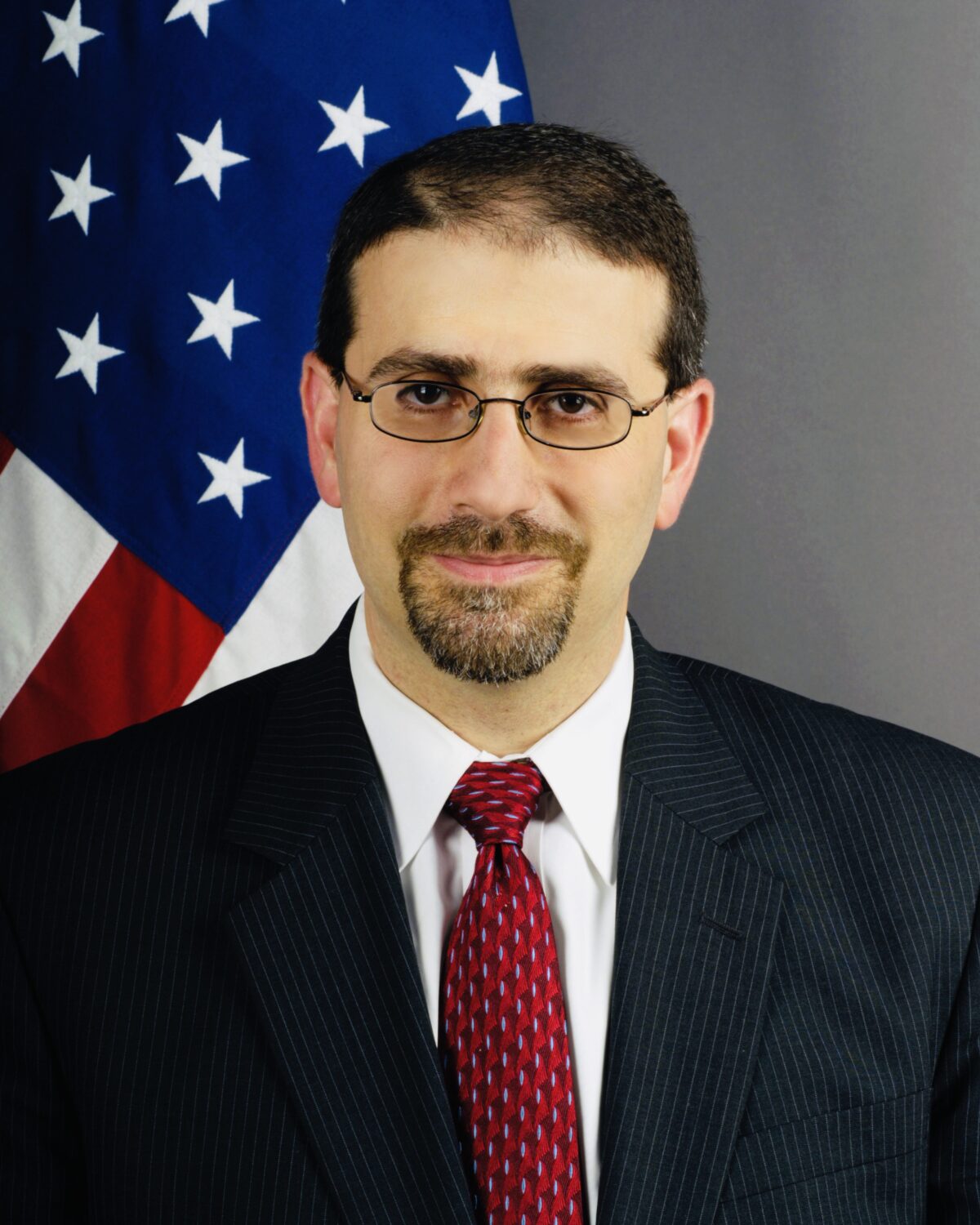Benjamin Netanyahu has said that his chief foreign policy objective in the Middle East is to normalize bilateral relations with Saudi Arabia and thereby expand the membership of the 2020 Abraham Accords, which currently consists of the United Arab Emirates, Bahrain, Morocco and Sudan.
The Israeli prime minister claims that Saudi Arabia’s inclusion would effectively end the Arab-Israeli conflict, diminish regional tensions, and enhance the prospects of prosperity in the Mideast.
It is a grand and progressive vision worthy of the utmost efforts. But it is receding in plain sight due to an upsurge of Palestinian and Jewish settler violence in the West Bank and the expansion of Israel’s settlements there.
These developments greatly undermine the chances of a two-state solution, which is one of Saudi Arabia’s unwavering conditions for a historic rapprochement with Israel.
That this is happening is hardly surprising.
Netanyahu, a rightist from the Revisionist school of Zionism, presides over the most reactionary government in Israeli history. He and his ministers are in the process of expanding settlements, entrenching Israel’s control of the West Bank, and smothering the possibility of Palestinian statehood once and for all. At best, they would grant the Palestinians a limited form of autonomy.
Netanyahu is acutely aware that he needs to make major concessions to the Saudis, but given the hard right nature of his coalition government, he cannot move forward. However, he should remember that the United Arab Emirates and Bahrain agreed to normalize relations with Israel only after Netanyahu called off his plan to annex the Jordan Valley.
In the face of this unforgiving political landscape, the United States, a supporter of a two-state solution, has launched a concerted diplomatic campaign to broker a normalization agreement between Israel and Saudi Arabia. Yet, as U.S. Secretary of State Antony Blinken has warned, the ongoing troubles in the West Bank have made the attainment of normalization far more problematic and difficult.

In a speech to the Council on Foreign Relations in New York City on June 28, Blinken said, “We’ve told our friends and allies in Israel that if there’s a fire burning in their backyard, it’s going to be a lot tougher, if not impossible, to actually both deepen the existing (Abraham Accords) agreements, as well as to expand them to include potentially Saudi Arabia.”
Despite his warning, Blinken announced the following day that Dan Shapiro — the U.S. ambassador to Israel from 2011 to 2017 — had been appointed to a State Department position aimed at enlarging the Abraham Accords. As senior advisor for regional integration in the Middle East, Shapiro will be responsible for supporting U.S. policy “to advance a more peaceful and interconnected region, deepen and broaden the Abraham Accords, and build the Negev Forum.”
Two seasoned U.S. diplomats, Brett McGurk and Amos Hochstein, are still in overall charge of the Israel-Saudi normalization file. Shapiro will assist them in this endeavor and, in particular, will attempt to breathe new life into the Negev Forum, which was conceived by Israel’s former foreign minister and prime minister, Yair Lapid, in March 2022.

Designed to foster regional cooperation in the fields of the economy, climate change, water security and public health, the Negev Forum brought together representatives of Israel, the United States, the United Arab Emirates, Bahrain, Morocco and Egypt in a conference in southern Israel.
Since then, the Negev Forum’s steering committee has met three times, but a second ministerial meeting, which was originally slated for March, was postponed due to rising tensions in the West Bank.
Since the spring of 2022, 24 Israelis, mostly Jewish settlers, have been killed in Palestinian terrorist attacks, while more than 140 Palestinians have lost their lives in Israeli army raids in the northern West Bank, especially in and around Jenin and Nablus. During this period, Israeli settlers have attacked Palestinian civilians in violent rampages, causing extensive property damage and embarrassing Israel.
Amid this unrest, U.S. and Israeli diplomats managed to reschedule the next Negev Forum, which was to take place in Morocco in June. But earlier this month, the Moroccan government, which has expanded its ties with Israel by a significant degree in the past three years, cancelled its plan to host the followup conference. The cancellation was announced after two provocative moves by the Israeli government.

First, Finance Minister Bezalel Smotrich, the leader of the far-right Religious Zionist Party, confirmed that Israel intends to build 4,500 housing units in West Bank settlements, which are populated by 500,000 Israeli Jews.
At last count, there were more than 130 authorized settlements and about 100 illegal outposts.
Second, Israel announced that Defence Minister Yoav Gallant would transfer his authority over settlement construction to Smotrich, an ardent supporter of the settlement movement who calls for the annexation of much of the West Bank. In recent months, Smotrich has told government ministries to improve infrastructure in West Bank settlements so as to facilitate the absorption of an additional 500,000 settlers within the upcoming years.
Since Netanyahu’s return to office late last year, Israel has approved or advanced permits to construct 13,082 homes in the West Bank, the highest number since 2012. Several days ago, Israel announced that 5,700 new settlement homes would be built there. After a terrorist attack in Eli on June 20, Netanyahu announced plans to build an additional 1,000 homes in that settlement.
Earlier this month, National Security Minister Itamar Ben-Gvir, the leader of the Jewish Power Party, urged settlers to “run to the hilltops” to construct new settlements. This reminded observers of a comment made in 1998 by Ariel Sharon, the then foreign minister, to “run and grab as many hilltops” as they could, “because everything we take now will stay ours.”

Israel’s aggressive settlement policy in the West Bank has clearly enraged Palestinians in the West Bank and emboldened them to lash out in acts of random terrorism.
The most recent cycle of violence broke out in the wake of an Israeli army raid in Jenin in June during which seven Palestinians were killed. During the operation, an Israeli armored personnel carrier loaded with soldiers was ambushed, forcing Israel to call in helicopter gunships to fend off the Palestinian attackers. This was the first time in years that Israel had resorted to such a drastic measure in combat with the Palestinians.
This incident was followed by the attack in Eli, during which four Israeli settlers were fatally shot by two Palestinians. Shortly afterward, Israel deployed a drone to kill three Palestinians in a car who had fired on an Israeli checkpoint in the West Bank.

The deaths of four Israelis in Eli sparked a wave of reprisals by hundreds of Jewish settlers in Palestinian towns and villages. Over two days, they set fire to 15 homes and 60 vehicles. During the chaos, a Palestinian man was killed by Israeli forces. Netanyahu described the settler attacks as unacceptable.
Barbara Leaf, the U.S. assistant secretary of state for Near East Affairs, warned last week that settler violence jeopardizes U.S. attempts to entice additional Arab states, especially Saudi Arabia, into the Abraham Accords.

Since January, there have been more than 400 settler attacks on Palestinians in the West Bank.
In a joint statement, the heads of the Israeli armed forces, the Israeli Police and the Shin Bet security agency condemned the violence against Palestinian civilians. “These attacks go against every moral and Jewish value and are nationalist terrorism in the full sense of the term, and we are obliged to fight them,” wrote the army’s top general, Herzi Halevi, the director of the Shin Bet, Ronen Bar, and the police commissioner, Kobi Shabtai.
However, Ben-Gvir praised the Jewish vigilantes and called for a broader Israeli military operation in the West Bank. Smotrich blasted “the attempt to equate murderous Arab terror and civilian actions in response.”
Amid the violence, the Saudi government disclosed that direct flights between Israel and Saudi Arabia for Israeli Muslim pilgrims wishing to attend the annual Hajj would not, as expected, be available this year. Whether or not the announcement was politically-motivated was unclear, but the United States regards these potential flights as a step forward toward Israeli-Saudi normalization.
On June 26, Saudi Arabia’s ambassador to the United States, Princess Reema bin Bandar Al-Saud, spelled out a vision of peace with Israel. Speaking at the Aspen Ideas Festival in Colorado, she explained that the ruling House of Saud focuses on “integration” rather than “normalization.”

As she put it, “We don’t say normalization, we talk about an integrated Middle East, united as a bloc like Europe, where we all have sovereign rights and sovereign states (and) a shared and common interest.”
Judging by her remarks, Saudi Arabia is not yet ready to grant Israel official recognition and join the Abraham Accords. Saudi Arabia is likely to hew to the status quo as long as Palestinian violence flares and Israel continues to oppose Palestinian statehood and persists in expanding its array of settlements in the West Bank.
